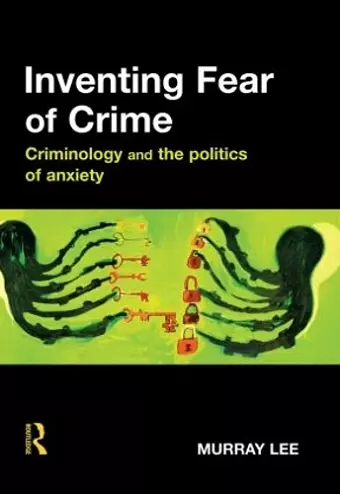Inventing Fear of Crime
Format:Hardback
Publisher:Taylor & Francis Ltd
Published:1st Jan '07
Currently unavailable, and unfortunately no date known when it will be back
This hardback is available in another edition too:
- Paperback£55.99(9781843921745)

Over the past four decades the fear of crime has become an increasingly significant concern for criminologists, victimologists, policy makers, politicians, police, the media and the general public. For many practitioners reducing fear of crime has become almost as important an issue as reducing crime itself. The identification of fear of crime as a serious policy problem has given rise to a massive amount of research activity, political discussion and intellectual debate.
Despite this activity, actually reducing levels of fear of crime has proved difficult. Even in recent years when many western nations have experienced reductions in the levels of reported crime, fear of crime has often proven intractable. The result has been the development of what amounts to a fear of crime industry. Previous studies have identified conceptual challenges, theoretical cul-de-sacs and methodological problems with the use of the concept fear of crime. Yet it has endured as both an organizing principal for a body of research and a term to describe a social malady. This provocative, wide ranging book asks how and why fear of crime retains this cultural, political and social scientific currency despite concerted criticism of its utility? It subjects the concept to rigorous critical scrutiny taking examples from the UK, North America and Australia.
Part One of Inventing Fear of Crime traces the historical emergence of the fear of crime concept, while Part Two addresses the issue of fear of crime and political rationality, and analyses fear of crime as a tactic or technique of government. This book will be essential reading on one of the key issues in government and politics in contemporary society.
'Murray Lee's work on the fear of crime is tremendously important; it cannot be ignored by anyone wishing to seriously pursue this most slippery and politically-charged of concepts. This book does a wonderful job of locating the fear of crime in the wider social and political contexts. In so doing, Lee touches on a number of important areas of contemporary criminological concerns (CCTV, private security and risk to mention but three of them). This book deserves to be widely read - I am sure that it will be.' − Stephen Farrall, University of Sheffield
'It was Thomas Hobbes that identified the potency of fear as a source of political motivation. Fear has once again returned to the centre of our public life and everyday experience in late modernity. 'Our citizens have the right to live without fear' intone political leaders. But supplying the knowledge, advice, services and products that support the fear industry - exploring, measuring, engendering, tempering, assuaging everyday fears - is now an endeavour joined by a range of agents from the market, voluntary, academic and government sectors. A sparkling intellectual genealogy of the relentlessly proliferating discourses around fear of crime, Lee's book provides a fresh way of viewing the concept that has spawned this industry and which in a short time has managed to become a staple of criminological knowledge and crime policy. He shows how fear has become a new object of knowledge and a new device of rule for governments, communities, households and individuals. Governed through fear, citizens as consumers are exhorted to the responsible self-management of their insecurities, communities are united on the back of little more than shared anxieties and states seek to renew their legitimacy in terms of security. Lee however also demonstrates the unruliness of this new object as new programmes for knowing and managing fear serve to foment the very thing which they seek to control. This book will be of particular interest to criminologists but should attract the attention of many others inside and outside the academy. It will change the way we think about fear of crime.' − Russell Hogg, University of New England
ISBN: 9781843921752
Dimensions: unknown
Weight: 630g
256 pages